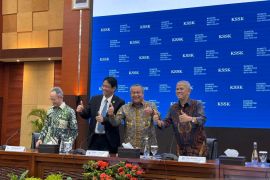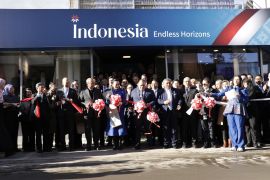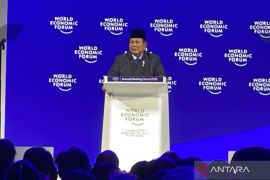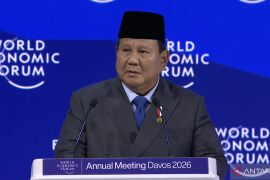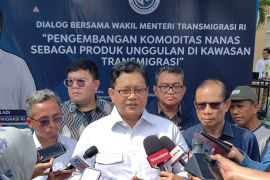Nevertheless, we must remain vigilant by strictly implementing the health protocols and preparing various emergency measures, if necessaryJakarta (ANTARA) - The Indonesian economy is projected to grow 5.2 percent on the back of strengthening investment and exports as well as continued recovery in public consumption, head of the Finance Ministry's Fiscal Policy Agency has said.
"Of course, this must be supported by efforts to control the pandemic as a whole, including by massive acceleration of vaccinations," Febrio Kacaribu remarked in an official statement issued here on Monday.
Besides controlling the pandemic, structural reforms must continue to be implemented consistently and comprehensively to strengthen the economic foundation by increasing national competitiveness and productivity, he said.
However, there are a number of risks that must continue to be monitored and prevented, especially the spread of the Omicron variant, which, since late 2021, has hit various countries and triggered a new wave of COVID-19 cases, he added.
Reports from various countries have shown that the Omicron variant spreads more quickly than the Delta variant; however, the decline in cases is also faster, Kacaribu said.
Currently, Indonesia is also facing an Omicron surge, with daily cases crossing 36 thousand as of February 6, 2022, he noted. Fortunately, the hospital occupancy rate (BOR) and the number of deaths are still relatively lower than during the Delta wave, he said.
"Nevertheless, we must remain vigilant by strictly implementing the health protocols and preparing various emergency measures, if necessary. The availability of adequate vaccines can help reduce the wave of cases caused by the Omicron variant," he stressed.
To support these efforts, Kacaribu said that state budget spending should be flexible and responsive to help the nation face the challenges ahead.
The government is also trying to prevent external risks, such as high inflationary pressure, accelerated reduction in asset purchases or tapering in the United States, as well as the potential impact of ongoing geopolitical issues, he added.
"In this case, the government, together with other authorities, who are members of the Financial System Stability Committee (KSSK) are continuing to work together to prepare a preventive policy mix for dealing with these global risks. The government will also coordinate with Bank Indonesia and local governments to maintain food price stability in Indonesia," he added.
Related news: Indonesia's first-quarter growth may reach 5%: economist
Related news: Aiming for over 5% economic growth in first quarter: minister
Related news: Indonesian economy grows 3.69 percent in 2021 following contraction
Translator: Katriana
Editor: Sri Haryati
Copyright © ANTARA 2022

